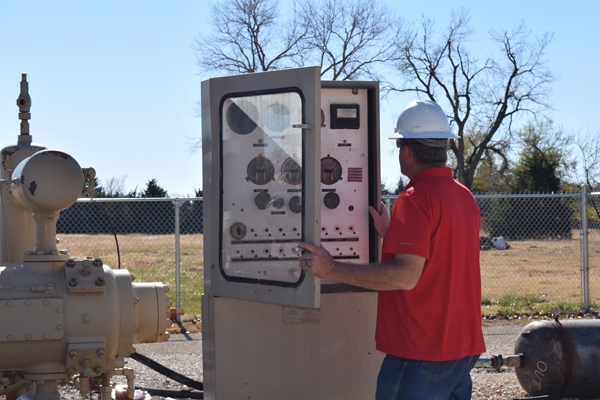Whether for a natural gas pipeline or an offshore production platform, the carbon footprint of reciprocating engines in the oil and gas sector continues to get larger. Wanting to rein in these emissions, University of Oklahoma engineers have discovered that a 70% reduction in emissions from natural gas engines may be achievable.
Their project – Low-Cost Retrofit Kit for Integral Reciprocating Compressors to Reduce Emissions and Enhance Efficiency – is led by Pejman Kazempoor, Ph.D., an assistant professor in the School of Aerospace and Mechanical Engineering in the Gallogly College of Engineering. He says the study’s main scope is to reduce emissions from these oil and gas components.
“We are working on manipulating parts of integral compressors to make them more efficient,” Kazempoor said. “Our primary results have shown that we can reduce the emissions by 70%, and if we can achieve this, we will have a major impact on emission reduction from oil and gas facilities.”
Kazempoor and his team’s discovery led to OU being awarded a total of $1.4 million from the Office of Fossil Energy in the Department of Energy. OU was among 16 institutions receiving almost $25 million total in federal funding from the DOE for the projects. The team is comprised of OU researchers Kumar Parthasarathy, Ph.D., Sridhar Radhakrishnan, Ph.D., and Hamidreza Shabgard, Ph.D.
As part of the endeavor, OU has partnered with Mid Continent Rental Company in Oklahoma City and WAGO Corp., in Germantown, Wisconsin, to develop the technology for integral reciprocating compressors. OU researchers now conduct true-scale emissions tests on a slow-speed compressor, donated by Mid Continent, at a natural gas site near the OU campus.



